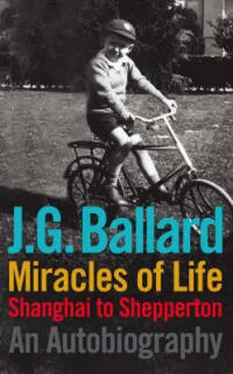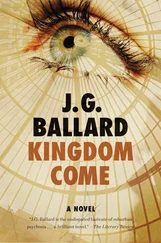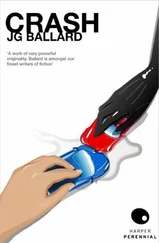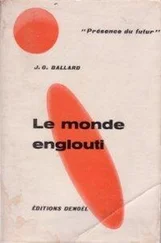Given the harsh facts of existence on the streets of Shanghai, and the famine, floods and endless civil war that had ravaged their villages, the servants may have been reasonably content, aware that thousands of destitute Chinese roamed the streets of Shanghai, ready to do anything to find work. Every morning when I was driven to school I would notice fresh coffins left by the roadside, sometimes miniature coffins decked with paper flowers containing children of my own age. Bodies lay in the streets of downtown Shanghai, wept over by Chinese peasant women, ignored in the rush of passers-by. Once, when my father took me to his office in the Szechuan Road, near the Bund, a Chinese family had spent the night huddling against the steel grille at the top of the entrance steps. They had been driven away by the security guards, leaving a dead baby against the grille, its life ended by disease or the fierce cold. In the Bubbling Well Road our car had to halt when the rickshaw coolie in front of us suddenly stopped, lowered his cotton trousers and leant forward over his shafts, defecating a torrent of yellow liquid at the roadside, to be stepped in by the passing crowds and carried all over Shanghai, bearing dysentery or cholera into every factory, shop and office.
As a small boy aged 5 or 6 I must have accepted all this without a thought, along with the backbreaking labour of the coolies unloading the ships along the Bund, middle-aged men with bursting calf veins, swaying and sighing under enormous loads slung from their shoulder-yokes, moving a slow step at a time towards the nearby godowns, the large warehouses of the Chinese merchants. Afterwards they would squat with a bowl of rice and a cabbage leaf that somehow gave them the energy to bear these monstrous loads. In the Nanking Road the Chinese begging boys ran after our car and tapped the windows, crying ‘No mama, no papa, no whisky soda…’ Had they picked up the cry thrown back at them ironically by Europeans who didn’t care?
When I was 6, before the Japanese invasion in 1937, an old beggar sat down with his back to the wall at the foot of our drive, at the point where our car paused before turning into Amherst Avenue. I looked at him from the rear seat of our Buick, a thin, ancient man dressed in rags, undernourished all his life and now taking his last breaths. He rattled a Craven A tin at passers-by, but no one gave him anything. After a few days he was visibly weaker, and I asked my mother if No. 2 Coolie would take the old man a little food. Tired of my pestering, she eventually gave in, and said that Coolie would take the old man a bowl of soup. The next day it snowed, and the old man was covered with a white quilt. I remember telling myself that he would feel warmer under this soft eiderdown. He stayed there, under his quilt, for several days, and then he was gone.
Forty years later I asked my mother why we had not fed this old man at the bottom of our drive, and she replied: ‘If we had fed him, within two hours there would have been fifty beggars there.’ In her way, she was right. Enterprising Europeans had brought immense prosperity to Shanghai, but even Shanghai’s wealth could never feed the millions of destitute Chinese driven towards the city by war and famine. I still think of that old man, of a human being reduced to such a desperate end a few yards from where I slept in a warm bedroom surrounded by my expensive German toys. But as a boy I was easily satisfied by a small act of kindness, a notional bowl of soup that I probably knew at the time was no more than a phrase on my mother’s lips. By the time I was 14 I had become as fatalistic about death, poverty and hunger as the Chinese. I knew that kindness alone would feed few mouths and save no lives.

Myself aged 5 at my riding school in Shanghai .
I remember very little before the age of 5 or 6, when I joined the junior form of the Cathedral School for boys. The school was run on English lines with a syllabus aimed at the School Certificate examinations or their pre-war equivalent, heavily dominated by Latin and scripture classes. The masters were English, and we were made to work surprisingly hard, given the nightclub and dinner-party ethos that ruled the parents’ lives. There were two hours of Latin every other day and a great deal of homework. The headmaster was a Church of England clergyman called the Reverend Matthews, a sadist who was free not only with his cane but with his fists, brutally slapping quite small boys. I’m certain that today he would be prosecuted for child abuse and assault. Miraculously I escaped his wrath, though I soon guessed why. My father was the chairman of a prominent English company, and later vice-chairman of the British Residents Association. I noticed that the Reverend Matthews only caned and slapped the boys from more modest backgrounds. One or two were beaten and humiliated almost daily, and I’m still surprised that the parents never complained. Bizarrely, this was all part of the British stiff-upper-lip tradition, no match as it would turn out for another violent tradition, bushido, and the ferocious violence meted out by Japanese NCOs to the soldiers under their command.
When the Reverend Matthews was interned he underwent a remarkable sea change: he abandoned his clerical collar and spent hours sunbathing in a deckchair, and even became something of a ladies’ man, as if at last able to throw off the disguise imposed on him by a certain kind of English self-delusion.
Outside school I remember a great many children’s parties, every child escorted by its refugee nanny, a chance for White Russian and German Jewish girls to exchange gossip. During school holidays we would drive every morning to the Country Club, where I spent hours in the swimming pool with my friends. I was a strong swimmer, and won a small silver spoon for coming first in a diving competition, though I wonder if the prize was awarded to me or to my parents.
At home I spent a great deal of time on my own. Social life in pre-war Shanghai was a career occupation for my mother, playing tennis at the Country Club, bridge with her friends, shopping and lunching in the downtown hotels. In the evenings there were dinner parties and nightclub visits. Often my mother would help me with my Latin homework, but much of the day I was alone in a large house where the Chinese servants never looked at me and never spoke to me, while the nanny read my mother’s novels and played dance music on the radiogram. I would sometimes listen to one of the dozens of English-language radio stations (I liked to phone in record requests under the alias ‘Ace’) or play chess with the nanny; my father taught me to win, and I taught the nannies to lose. The succession of White Russian girls must have been bored to death by me, and one of them told me that the sound of thunder that startled me was ‘the voice of God – he’s angry with you, James.’ I remember being unsettled by this for years. For some reason I almost believed her.
Now and then I would go with my mother or the nanny to the cinema, one of the vast art deco theatres that loomed over Shanghai. The first film I saw was Snow White , which frightened the wits out of me. The wicked queen, the purest essence of evil radiating across the auditorium, reminded me too much of my friends’ mothers when they tired of me rearranging their furniture.
Most of the children’s books I read, such as the Arabian Nights , the Grimms’ fairy tales and The Water-Babies , were deeply disturbing, with illustrations inspired by the Pre-Raphaelites and Beardsley, full of airless gothic interiors and lantern-lit forests. They probably prepared me for the surrealists. I read children’s versions of Gulliver’s Travels and Robinson Crusoe, which I loved, especially Crusoe, and I can still hear the sound of waves on his beach. I devoured American comics, which were on sale everywhere in Shanghai and read by all the English boys – Buck Rogers, Flash Gordon and, later, Superman. Terry and the Pirates was my favourite, about an American mercenary pilot in the Far East, part of it set in the Shanghai where I lived. Later I read American bestsellers, such as All This and Heaven Too, Babbitt, Anthony Adverse and Gone With the Wind . My parents subscribed to a number of magazines – Life, Time, the New Yorker, Saturday Evening Post and so on, and I spent hours turning their pages and revelling in their American optimism.
Читать дальше







